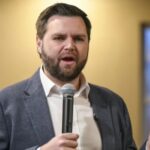



President Trump and Secretary of State Marco Rubio have set their sights on the National Security Council, embarking on a substantial restructuring effort. The reorganization reduces the size of the NSC and reallocates its responsibilities to streamline governmental processes.
Axios reported that the administration's initiative aims to halve the NSC's current membership from 350 members to streamline operations significantly. This downsizing endeavor is to mitigate inefficiencies perceived to be prevalent within the bureaucracy of the NSC.
The responsibility once held by the NSC is being redistributed to the State and Defense departments. The goal is to achieve a more integrated and efficient decision-making process within the administration.
According to a White House official, this move is directed against what is referred to as Washington's "Deep State." The reorganization aligns with Secretary Rubio's prior efforts to reform USAID and modernize the State Department.
Rubio will assume new duties as acting national security adviser during this transition period. Accompanying him are Andy Baker and Robert Gabriel, who will serve as deputy national security advisers.
The updated organizational structure reflects a "top-down" decision-making approach, reducing reliance on committees within the NSC. A senior White House official expressed that the preceding method of processing decisions from "bottom-to-top" is being phased out.
The restructured framework shifts the NSC’s primary role to advising and coordinating policy, rather than carrying out obligations. This adaptation is indicative of the administration's preference for efficiency over bureaucracy.
The administration's workflow revamp was illustrated by the recent decision to end sanctions against Syria. This method emphasized achieving outcomes based on the president's directives, showcasing the transformative "reverse workflow" style.
A senior Trump administration official emphasized the avoidance of inter-agency conflicts: "If you have officials fighting each other and their agencies always involved in turf wars, you may need this process," the official noted.
This approach marks a notable adjustment in how policy decisions are implemented, shifting the focus towards top-level directives rather than grassroots input.
An insider with direct knowledge emphasized that Rubio is instrumental in these sweeping changes. The sentiment was echoed by a White House source, who labeled the NSC "the ultimate Deep State."
Rubio's engagement with Trump on policy directions, such as those concerning Cuba, further exemplifies the necessity of top-down decision-making. He highlighted the importance of direct presidential commands to influence policy due to resistance from entrenched career staff.
By facilitating this streamlined operation, the administration endeavors to enhance national security procedures while minimizing internal dissent.
Efforts to relocate displaced staff members to alternative government roles are part of the transitional strategy. This move is designed to mitigate the impact of the shuffle on personnel within the NSC's structure.
The overarching aim of this restructuring campaign is to align advisory operations with the president's strategic objectives, leveraging leadership to drive policy execution efficiently.



